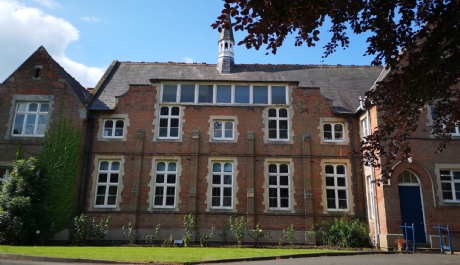Safeguarding and E Safety

Safeguarding and E Safety
Safeguarding & E Safety
Designated Safeguarding Lead
Mr Brooks
Deputy Designated Safeguarding Lead
Mr Dormor
Other Useful Contacts
|
Safeguarding Children Lincolnshire |
Lincolnshire's Children's Services customer service centre for reporting concerns and early help team for advice 01522 782111 01522 782333 (6pm-8am + weekends and bank holidays) |
|
Police (emergency) |
999 |
|
Police (non-emergency) |
101 |
Childline www.childline.org.uk 0800 1111
Cruse Bereavement www.cruse.org.uk 0808 8081677
Kooth www.kooth.com
Mind www.mind.org.uk 0300 123 3393
NSPCC www.nspcc.org.uk 0808 800 5000
SHOUT www.giveusashout.org Text SHOUT 85258
Young Minds www.youngminds.org.uk
Child Abuse Definitions:
Child abuse is any action by another person, adult or child, that causes significant harm.
It can be physical, sexual or emotional, but can just as often be about a lack of love, care and attention. We know that neglect, whatever form it takes, can be just as damaging to a child as physical abuse.
Physical
Children who are emotionally abused suffer emotional maltreatment or neglect. It’s sometimes called psychological abuse and can cause children serious harm.
Sexual
A child is sexually abused when they are forced or persuaded to take part in sexual activities. This doesn’t have to be physical contact, and it can happen online
Emotional
Children who are emotionally abused suffer emotional maltreatment or neglect. It’s sometimes called psychological abuse and can cause children serious harm.
Neglect
Neglect is the ongoing failure to meet a child’s basic needs. It’s dangerous and children can suffer serious and long-term harm.
On line abuse
Online abuse is any type of abuse that happens on the web, whether through social networks, playing online games or using mobile phones.
Sexual Exploitation
Child sexual exploitation is a type of sexual abuse in which children are sexually exploited for money, power or status.
Female genital mutilation
Female genital mutilation (FGM) is the partial or total removal of external female genitalia for non-medical reasons.
Bullying and cyberbullying
Bullying can happen anywhere – at school, at home or online. It’s usually repeated over a long period of time and can hurt a child both physically and emotionally.
Domestic abuse
Witnessing domestic abuse is child abuse, and teenagers can suffer domestic abuse in their relationships.
Child trafficking
Child trafficking is a type of abuse where children are recruited, moved or transported and then exploited, forced to work or sold.
Grooming
Children and young people can be groomed online or in the real world, by a stranger or by someone they know - for example a family member, friend or professional.
Harmful sexual behaviour
Children and young people who develop harmful sexual behaviour harm themselves and others.
The Underwear Rule
As it can sometimes be very difficult to discuss issues surrounding child abuse, the NSPCC has launched a campaign designed to help parents talk to their children about keeping safe. More information can be found by visiting the NSPCC website.
If you are unsure you must contact the Safeguarding Team at School. We are here to help and advise parents/carers
Our Child Protection and Safeguarding can be found on the website in the Policies section.
E-Safety
At Spalding Grammar School we take E-Safety seriously and are working to ensure that your children are protected whilst in our care, through regular assemblies, ongoing integration into the curriculum, posters etc. There is only so much we can do though, which is where you as parents and carers come into play.
So what can you do at home?
Things such as ensuring that a home PC or laptop is in a busy area of the house as it will mean you can be more involved in what they are doing.
Ensure your children don’t overuse the technology they have access to – a lot of computers/laptops/tablets allow you to limit time spent online.
It can be tough keeping up with the evolving technology your children are using – ask them about it, how it works, how they use it etc.
If you don’t already use social media but your child does, then maybe create your own account to see how it works for yourself.
With social media, it is important to ensure that children understand that being respectful and thinking before you post is right. It can be awful to receive negative comments online.
Talk to your children about privacy settings and the importance of not sharing information about themselves online, especially with people they may not know.
Don’t demonise the technology – if your child comes to you with a problem on their phone/tablet/laptop etc. then deal with the problem rather than removing the technology (it may make the child less likely to talk to you about a problem in future).
Don’t allow your child to use images of other students if they can be associated with the school. We do have some students in our school who would be at risk if their current school was identified.
There are numerous websites where you as a parent or carer can find out more information about e-safety and helping your children to be safe online. The following are some that can be used:
Think U Know - www.thinkuknow.com/parents
Childnet - www.childnet.com/parents-and-carers
BBC Online Safety - www.bbc.co.uk/onlinesafety
CEOP - www.ceop.police.uk
Parentport - www.parentport.org.uk
Hopefully, together we can work on ensuring all of your children are protected, knowledgeable and safe online.

